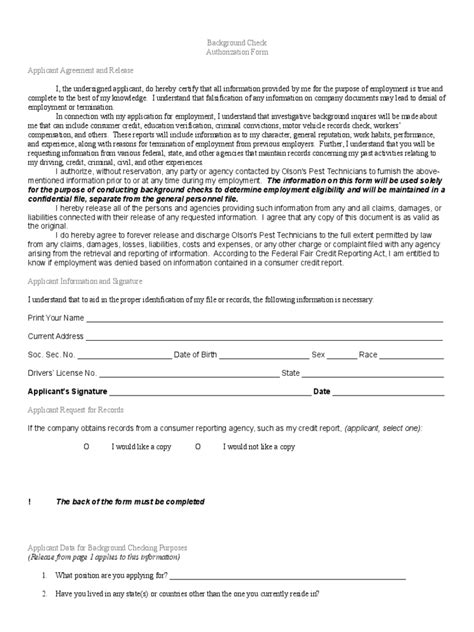Understanding Employment Background Checks

Employment background checks are a crucial part of the hiring process. Employers use background checks to verify information provided by job applicants and to ensure that they are hiring trustworthy and reliable candidates. In this comprehensive guide, we will delve into the details of employment background checks and provide you with all the information you need to know before embarking on your job search.
What is an Employment Background Check?
An employment background check is a process by which employers verify the information provided by job applicants. This is done to ensure that the candidate is qualified for the job and to check for any red flags that may indicate that the candidate is not suitable for the position.
Why Do Employers Conduct Background Checks?
Employers conduct background checks for several reasons:
- To verify the information provided by the candidate
- To ensure that the candidate has the necessary qualifications and experience for the job
- To check for any criminal history or other red flags that may indicate that the candidate is not suitable for the position
- To protect the company from potential legal liability
What Information is Included in an Employment Background Check?
The information included in an employment background check can vary, depending on the employer and the position being applied for. However, some common elements of a background check include:
- Criminal history
- Employment history
- Education history
- Credit history
- Professional licenses and certifications
- References
Types of Employment Background Checks
Criminal Background Checks
A criminal background check is a common type of employment background check that involves checking the candidate’s criminal history. This may include a search of local, state, and federal criminal records, as well as sex offender registries. Employers may also conduct a background check to see if the candidate has any outstanding warrants or has been involved in any civil lawsuits.
Employment Verification
Employment verification involves confirming the candidate’s employment history. This may include contacting previous employers to verify dates of employment, job titles, and job duties.
Education Verification
Education verification involves verifying the candidate’s education history. This may include contacting schools or universities to verify degrees and certifications.
Credit Checks
Credit checks involve checking the candidate’s credit history. This may be done to determine the candidate’s level of financial responsibility or to check for any red flags that may indicate that the candidate is not suitable for the position.
Reference Checks
Reference checks involve contacting the candidate’s references to verify information provided by the candidate and to obtain additional information about the candidate’s qualifications and work history.
How Long Does an Employment Background Check Take?
The length of time it takes to complete an employment background check can vary, depending on the employer and the type of background check being conducted. Some background checks can be completed within a few days, while others may take several weeks.
What Are Your Rights as a Job Applicant?
As a job applicant, you have certain rights when it comes to employment background checks. These include:
- The right to know if a background check will be conducted
- The right to consent to a background check
- The right to receive a copy of the background check report
- The right to dispute any inaccurate information on the background check report
Conclusion
Employment background checks are an essential part of the hiring process. As a job applicant, it is important to understand what is involved in a background check and what your rights are. By being prepared and informed, you can increase your chances of landing your dream job.
FAQs
What is the Fair Credit Reporting Act?
The Fair Credit Reporting Act (FCRA) is a federal law that regulates the collection, dissemination, and use of consumer information, including employment background checks. The FCRA requires employers to obtain written consent from job applicants before conducting a background check and to provide the applicant with a copy of the background check report if requested.
Can an employer deny employment based on a background check?
Yes, an employer can deny employment based on information obtained in a background check, provided that the information is relevant to the position being applied for and does not violate any anti-discrimination laws.
What should I do if I find inaccurate information on my background check report?
If you find inaccurate information on your background check report, you have the right to dispute the information with the background check company. You can also contact the employer to explain the situation and provide any additional information that may be relevant.
Can an employer conduct a background check without my consent?
No, an employer cannot conduct a background check without your consent. The employer must obtain written consent from you before conducting a background check.
